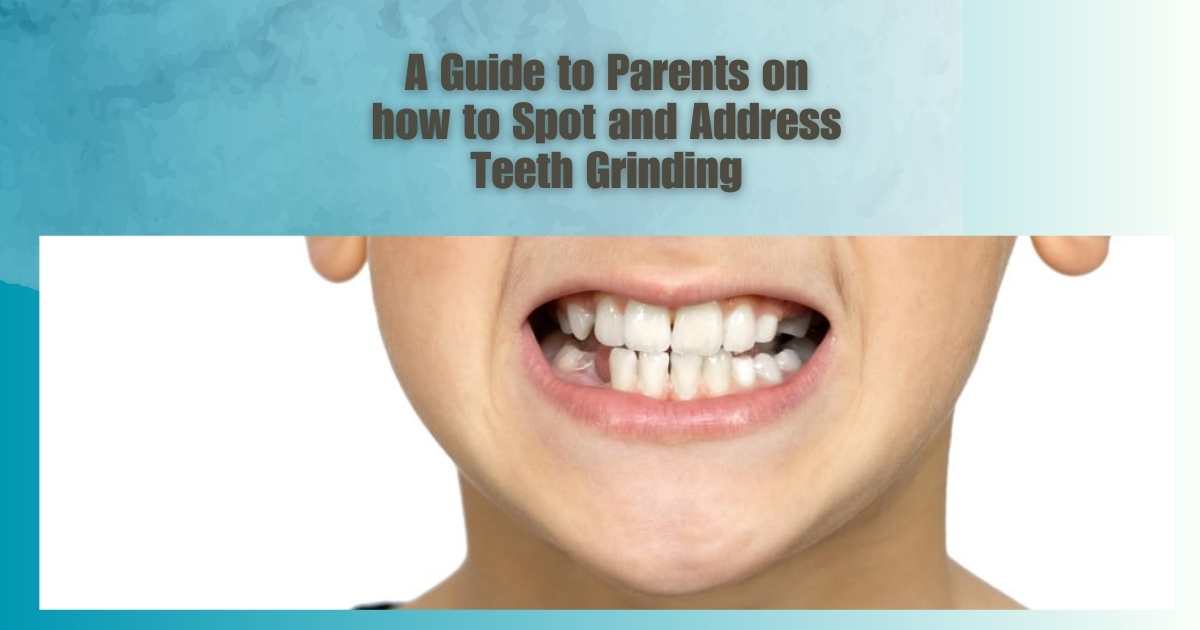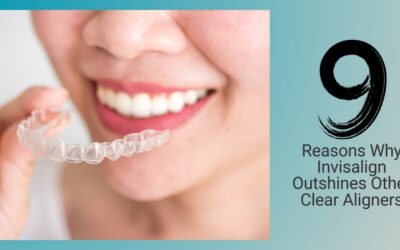Common in children is bruxism, another name for teeth grinding. Most children have teeth grinding and it is part of their growth. However if the grinding continues to adulthood it leads to Myofascial Pain Syndrome. It’s crucial for parents to be aware of the warning signals and know how to handle this problem in order to protect their child’s dental health. This blog will assist you in recognizing bruxism and offer practical management techniques.
Understanding Teeth Grinding in Children
Teeth grinding can be caused by a number of factors like allergies, stress, anxiety, and misaligned teeth. It frequently happens during sleep. It’s critical to keep an eye on your child’s conduct and recognize any warning indications.
Signs of Teeth Grinding
- Audible Grinding Noises
- A grinding noise made by your child while they are asleep is one of the most noticeable symptoms. This is typically audible from a nearby room and may be rather loud and unsettling.
- Worn or Damaged Teeth
- Examine teeth for wear and tear, chipping, or flattening. This visible wear may be a sign that your youngster grinds their teeth a lot.
Causes of Teeth Grinding
- Emotional Factors
- Anxiety and stress can lead to bruxism. Significant life transitions, academic demands, or familial problems may be factors in this illness.
- Physical Factors
- Teeth grinding may result from improper bite alignment or dental misalignment. In addition, allergens can cause teeth grinding because they make it difficult for kids to breathe during night.
How to Address Teeth Grinding in Adulthood
- Consult a Dentist
- Make an appointment with the dentist if you think your child is grinding their teeth into adulthood. A dentist is qualified to determine the degree of damage and recommend the best course of action.
- Stress Management Techniques
- Encourage frequent physical activity, yoga, and deep breathing exercises as ways to help handle stress. Promote candid discussion about any worries or anxiety your child may be experiencing.
Protective Measures in Adulthood
- Mouth Guards
- Dentists could advise to wear a mouth guard that is specially fitted for nighttime use. With the use of this tool, teeth can be shielded from additional harm from grinding.
- Regular Dental Check-ups
- Make sure to have routine dental examinations. Severe damage to the teeth and jaw can be avoided with early identification and treatment.
Home Remedies and Tips
- Warm Compresses
- Using a warm compress on the jaw helps ease jaw tension and reduce pain from grinding your teeth.
Seeking Professional Help
Seek expert assistance if your kid continues to grind their teeth in spite of your best efforts, or if they suffer from excruciating pain or serious dental damage. It should be noted that grinding can be noticed by whoever is sleeping next to the child or the adult who is grinding the teeth. However it should also be noted that clenching cannot be noticed at all and that is why regular dental check up is always recommended. Additional advice and treatment options might be provided by a pediatric dentist or a sleep disorder expert.
For children’s general oral health and wellbeing, it is critical to identify and have a check on teeth grinding so that you can ensure it does not continue into their adulthood. Parents may assist their children in overcoming teeth grinding and avert long-term oral problems by being watchful and proactive. Remember that the secret to giving your child a healthy, happy smile is early intervention and routine dental checkups.




